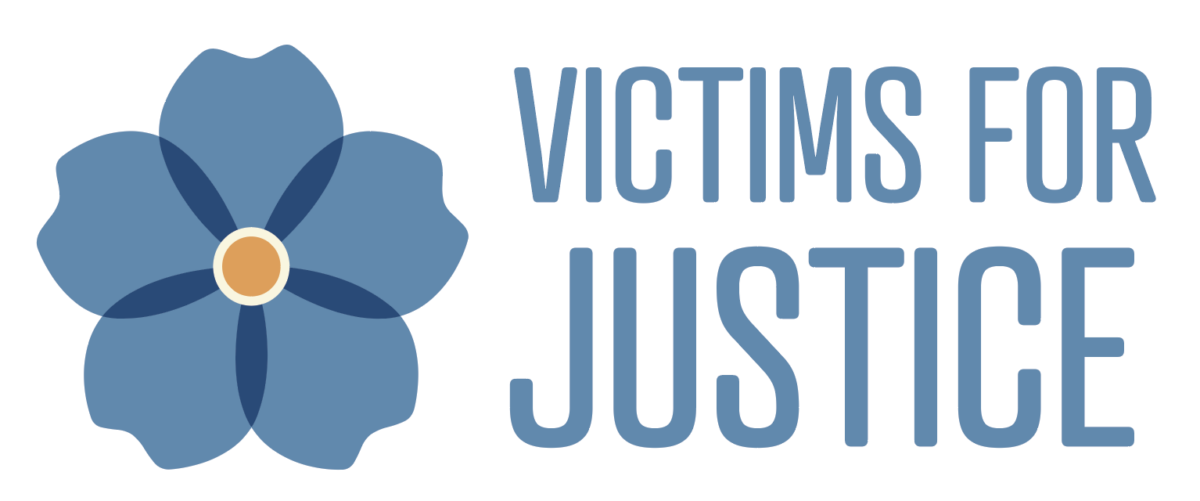“November 3, 2019 is a date that will always make me shudder. It was a date that drastically and forever changed me.”
With this sentence, Tasia Giannulis’ victim impact statement begins. A judge read it aloud in Anchorage Superior Court in April before sentencing a man to four years in prison after he pleaded guilty to felony assault charges.

Photo by Paula Dobbyn
“Nothing has been the same since. It was beyond traumatizing,” Tasia’s statement continues.
Tasia’s nightmare involved a man she had been dating, who one night promised to kill her with a crowbar. Later that evening, as she tried to flee, Tasia found herself trapped inside her car with the man outside, smashing the windows of her vehicle with that very crow bar.. Covered in the shattered glass of her windshield, Tasia managed to start the car and escape to safety. The harrowing incident left her with post-traumatic stress disorder, debilitating panic attacks, trouble sleeping and eating.
“Once happy and easygoing, I now find myself feeling angry, hopeless, ashamed, alone, confused, helpless and still so scared. My sense of security and self-confidence were shattered, and I am struggling to move past that date. My closest relationships have suffered greatly, and I have become guarded and distrusting,” Tasia’s victim impact statement continued.
Alaska is often called the nation’s deadliest state for women. According to a 2010 study by the University of Alaska Anchorage, some 59 percent of adult women in Alaska have experienced intimate partner violence, sexual violence or both, in their lifetimes.
When perpetrators are arrested and charges are brought against them, victims often find themselves suddenly immersed in a criminal justice system that feels confusing and overwhelming. That’s the way it felt for Tasia.
But Anchorage police gave Tasia a number to call. It was to the office of Victims for Justice, which provides victims of violent crime statewide with an array of services ranging from crisis intervention to court accompaniment.
Tasia dialed the number and connected with VFJ’s lead advocate, Michelle Evans.
Evans listened and provided guidance and support as the case worked its way through the court system. Already backlogged before Covid, the criminal justice system slowed down even further during the pandemic. The case involving Tasia’s perpetrator reached its conclusion 17 long months after the assault occurred.
But despite the delay, Tasia says VFJ was there for her all along the way.
“To say that Michelle and Victims for Justice has helped me can’t begin to capture their support. Without this organization and the encouragement, guidance and love from Michelle, I would not have had the courage or the strength to do what I needed to do so that this dangerous man was held accountable for the terrible things he did to me. From the moment that I met Michelle, I never doubted for a second that she had my best interests in mind. She answered every worried call, text and email throughout the entire case – start to finish. She spoke to the District Attorney’s office on my behalf and listened in on case hearings when I was too scared to go. She helped me understand and navigate a very complicated and confusing court process,” Tasia said.
Evans suggested her client apply to the Violent Crimes Compensation Board for a therapist specialized to help with severe trauma and PTSD.
“What happened to me that night was life changing, yes, but so was having the support of Michelle and VFJ. I have been able to rise from the darkest night of my life through love, support, hard work, tears and therapy, and I have found my voice. I stood up for myself and he is in jail for what he did to me. They helped me walk through the scariest and most difficult days with my head held high. Today I feel strong, empowered and free. Now I can close that chapter and move on. I am forever grateful that Michelle came into my life when she did. Without her, none of this would have been possible,” Tasia said

Recent Comments